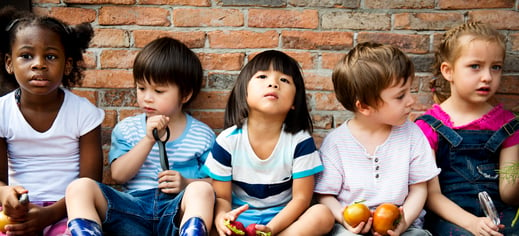
Last week marked Teachstone's annual user conference, InterAct NOW: CLASS® Summit, where hundreds of education leaders, coaches, and teachers from around the country came together to network and learn from each other. The event kicked off on Tuesday, March 15 with a special announcement from Teachstone CEO, Dr. Bridget Hamre.
As we've thought about what we can do to show up differently in the world as aligned to our equity commitment, there's one thing we could do that would be the most powerful and most important—and that's really this revision to CLASS.
This summer, CLASS® 2nd Edition will become available and help the education field create a more equitable, accessible, and impactful path toward meaningful interactions. But before jumping into what all the exciting updates include, it's important to pause and reflect on the 15 years since Teachstone began serving the field.
- More than 83,000 CLASS Observer certifications have been issued
- Over 2,600 Affiliate Trainers have led trainings in their communities
- We've supported 4,500 coaches in leading evidence-based professional development
- Nearly 50,000 members have connected and shared in the CLASS Learning Community
- And, more than 60,000 educators, coaches, and leaders have participated in continuous improvement efforts in myTeachstone
And while we celebrate each one of those individual accomplishments, we recognize that we ourselves have room for continuous improvement efforts at Teachstone. Bridget joked, that, "As a good CLASS observer and rater, I think I'd say we're somewhere in the mid-range—probably around a solid 4."
CLASS® 2nd Edition
In response to the need to make CLASS more equitable, easier to access and implement, and more impactful, Teachstone is rolling out CLASS 2nd Edition to the field this summer. These enhancements and tools were developed to meet the most urgent needs of the field while also maintaining the core structures of CLASS. With CLASS 2nd Edition, you can build on existing investments and infrastructure—paving the way for a seamless transition.
These updates include:
- Updates to the CLASS Observation Training for increased equity in observing diverse settings
- Updates to the CLASS Manual for ease of use and to drive more actionable data collection
- And, a new measure of quality called CLASS Environment.
Learn more about the specific updates that will become available and more information about how CLASS 2nd Edition came to be by watching Bridget's full keynote from InterAct below.
Where to Find More Information
If you're looking for a deeper dive into the updates and curious about how CLASS 2nd Edition is rolling out, we invite you to join us this Tuesday, March 29 at 3 p.m. ET for an information session. You'll hear directly from Bridget, as well as some of the team members who have helped envision and drive the changes.
Ready to move forward on your CLASS journey? Schedule a one-on-one consultation about CLASS 2nd Edition: Connect with our team today.

